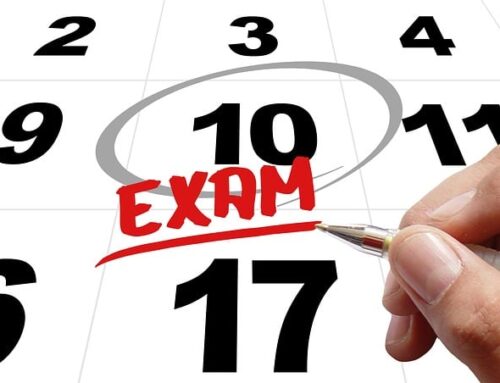Exams can feel like climbing a mountain, but fear not! With the right study materials, you can turn that mountain into a manageable hill. Let’s take a closer look at some common study tools—past papers, guides, notes, and books—in simple terms to help you navigate the exam terrain successfully.
Past Papers: Your Practice Playground
Picture this: you’re preparing for a big game. What do you do? You practice, right? Past papers are your practice matches before the exam championship. They’re like a sneak peek into the future, giving you a taste of what to expect. You’ll become familiar with the questions, the format, and the rhythm of the exam. It’s like rehearsing your lines for a play—practice makes perfect!
Pros:
- Practice, Practice, Practice: The more you practice, the more confident you become.
- Know the Enemy: Understanding the exam format is half the battle.
- Boosts Confidence: Familiarity breeds confidence, and confidence is your ally.
Cons:
- Not a Full Story: Relying solely on past papers might leave gaps in your knowledge.
- Need More Than Just Practice: While practice is crucial, it’s not the only ingredient for success.
Guides: Your Exam GPS
Guides are your trusty GPS—they help you navigate the tricky roads of your course. They’re like concise summaries, providing you with a roadmap to the key concepts. Guides are the CliffsNotes version of your study material, making things simpler and more straightforward.
Pros:
- Shortcut to Key Concepts: Guides condense complex information into bite-sized chunks.
- Like a Roadmap for Your Brain: They provide a structured path through the material.
- Quick and Easy to Understand: Guides are designed for efficiency and clarity.
Cons:
- Might Miss Some Details: Due to their condensed nature, guides might not cover every nuance.
- Don’t Rely on It Alone: While guides are helpful, they’re most effective when used in conjunction with other materials.
Notes: Your Personal Study Diary
Think of your notes as a personal study diary. They’re just for you, tailored to your learning style. Write down the important stuff, make it colorful, add doodles—make it your own! Your notes are like little memory aids, and during the exam, they become your trusted companions.
Pros:
- Personal Touch: Notes are uniquely yours, reflecting your understanding.
- Helps You Remember Better: Writing things down reinforces your memory.
- Like a Friend in the Exam Room: Your notes can be a source of comfort during the exam.
Cons:
- Might Forget to Write Some Things: It’s essential to be comprehensive in your note-taking.
- Can’t Rely Only on Memory: While notes help, they shouldn’t replace understanding.
Books: Your Study Buffet
Books are like a buffet—you’ve got a bit of everything. They’re substantial, covering a wide range of topics. Think of them as the main dish in your study feast. They provide in-depth explanations and examples, like your wise grandma sharing stories that resonate through time.
Pros:
- Covers a Wide Range of Topics: Books are comprehensive and thorough.
- Grandma’s Wisdom: In-depth explanations can enhance your understanding.
- Reliable Source of Information: Books are often authoritative and reliable.
Cons:
- Can Be Too Much: Some books might contain more information than necessary.
- Not All Books Fit Your Taste: Finding the right book for your learning style is crucial.
Finding Your Winning Combo
Now that we’ve met our study materials, how do we use them together for success? It’s like crafting the perfect dish—mix and match until it tastes just right!
- Start with Books:
- Begin with your textbooks or reference books. They form the foundation of your study. Read them to establish a solid understanding of the basics.
- Add Some Spice with Notes:
- While reading, take notes. Make it colorful, add some doodles—make it fun! Your brain loves visuals, and notes make the information more memorable.
- Sprinkle in Some Guides:
- Use study guides for a quick overview. Guides are like seasoning—they add flavor without overwhelming. They help you focus on the essential elements without getting lost in the details.
- Top it Off with Past Papers:
- Time for the final touch—practice with past papers. It’s like tasting your dish before serving it. Practice makes perfect, and past papers prepare you for the real deal.
A Word of Wisdom
Remember, there’s no one-size-fits-all approach. Everyone’s taste buds (learning style) are different. Some might prefer more books, while others thrive with a sprinkle of guides. Experiment, mix and match, and find your winning combination.
Seek Help Along the Way
Don’t be shy to ask for help! Your teachers, friends, or study groups can be your kitchen buddies. They might share their secret ingredients (study tips) with you, making your dish even better.
The Final Dish: Success on Your Plate
In the end, it’s all about finding the right balance. Too much of one thing might spoil the dish. Mix your study materials wisely, practice regularly, and you’ll have success served on your plate.
So, there you have it—a comprehensive guide to choosing your study materials. Now, go ahead, cook up a storm, and ace those exams! You’ve got this!
I hope that you are getting the things. If you have any questions related to it, comment below.


Leave A Comment
You must be logged in to post a comment.